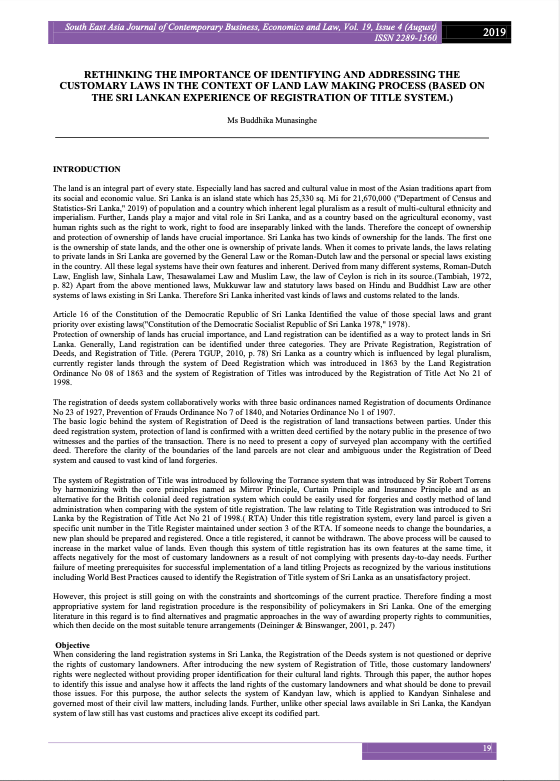Resource information
The land is an integral part of every state. Especially land has sacred and cultural value in most of the Asian traditions apart from its social and economic value. Sri Lanka is an island state which has 25,330 sq. Mi for 21,670,000 ("Department of Census and Statistics-Sri Lanka," 2019) of population and a country which inherent legal pluralism as a result of multi-cultural ethnicity and imperialism. Further, Lands play a major and vital role in Sri Lanka, and as a country based on the agricultural economy, vast human rights such as the right to work, right to food are inseparably linked with the lands. Therefore the concept of ownership and protection of ownership of lands have crucial importance. Sri Lanka has two kinds of ownership for the lands. The first one is the ownership of state lands, and the other one is ownership of private lands. When it comes to private lands, the laws relating to private lands in Sri Lanka are governed by the General Law or the Roman-Dutch law and the personal or special laws existing in the country. All these legal systems have their own features and inherent. Derived from many different systems, Roman-Dutch Law, English law, Sinhala Law, Thesawalamei Law and Muslim Law, the law of Ceylon is rich in its source.(Tambiah, 1972, p. 82) Apart from the above mentioned laws, Mukkuwar law and statutory laws based on Hindu and Buddhist Law are other systems of laws existing in Sri Lanka. Therefore Sri Lanka inherited vast kinds of laws and customs related to the lands.


